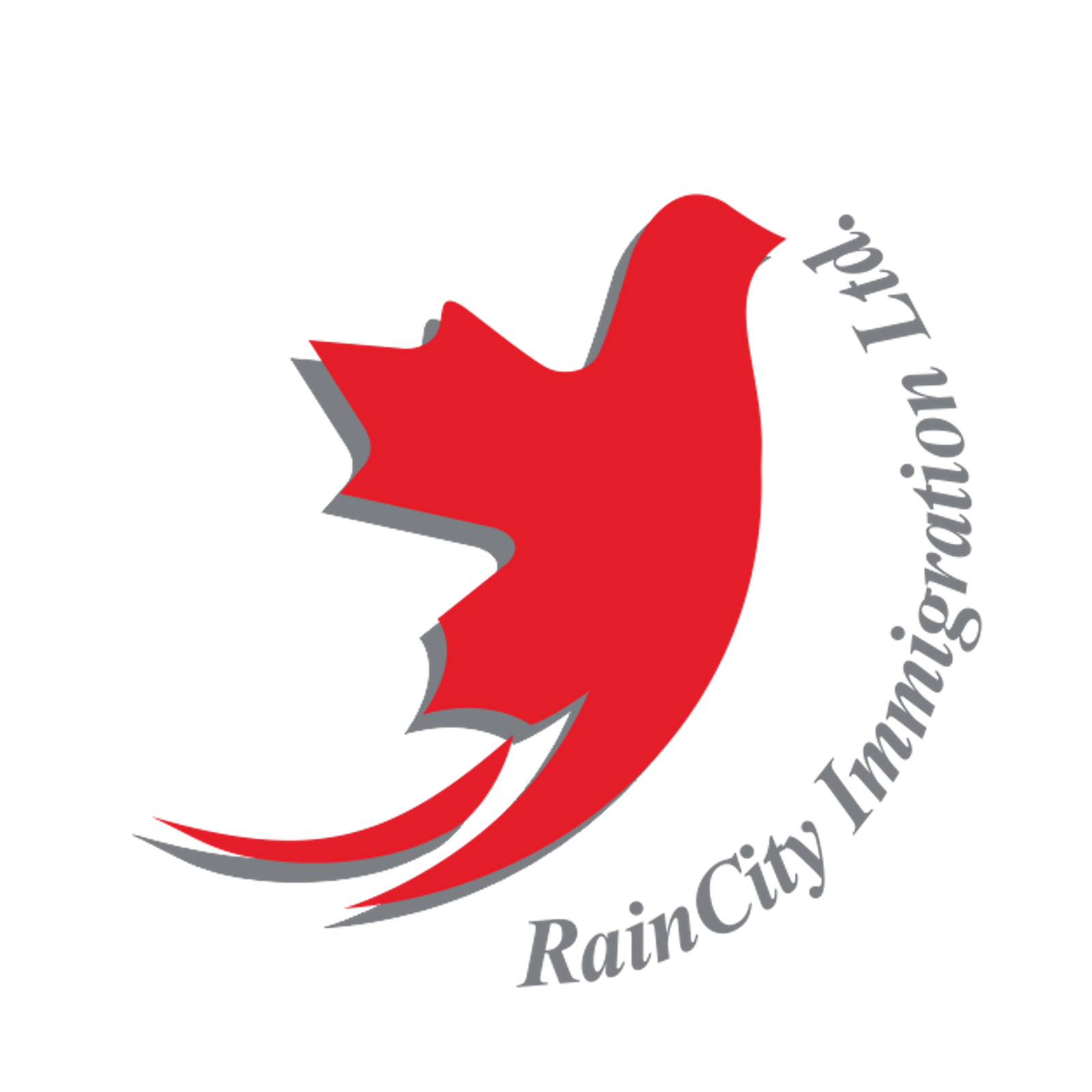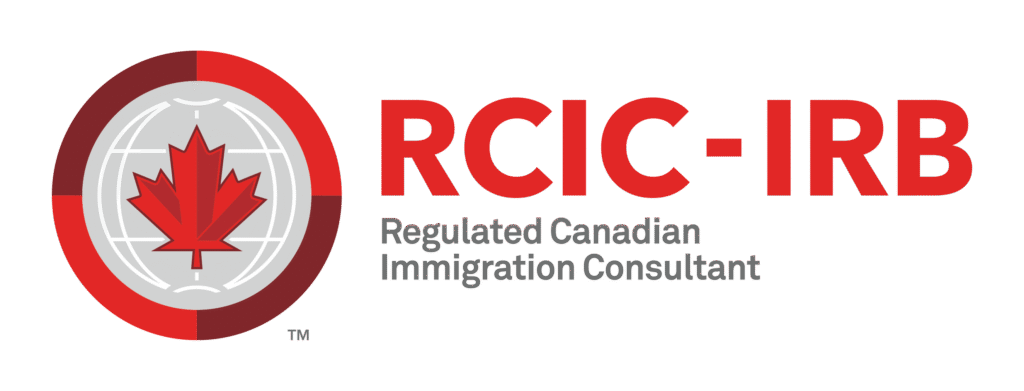Entrepreneurial Visa for Canada

Entrepreneurship essentially means starting a business, implementing a new business initiative, or purchasing an existing business in Canada’s provinces, which allows you to obtain a Canadian entrepreneurial visa as well as permanent residency in Canada.
Canadian provinces attract many immigrants each year with various entrepreneurship programs. Provincial entrepreneurial programs are part of the Provincial Nominee Program (PNP) and are considered one of the investment methods in Canada.
In this article, we will discuss the types of provincial entrepreneurial programs, the requirements for obtaining a Canadian entrepreneurial visa, the steps to obtain permanent residency through entrepreneurship, and other related topics.
Advantages of the Canadian Entrepreneurial Visa
Business development in an active economic environment: Canada is one of the countries with a strong and growing economy, so entrepreneurship here will lead to the development and growth of your business.
Ease of provincial and federal laws for starting businesses: Canada has simpler regulations compared to other countries like the U.S. for registering and launching businesses. Almost entrepreneurs from any country can grow their business or start new ones in Canada by meeting certain conditions.
Government support for innovative projects: Canada places special importance on innovative business plans or those that contribute to its economy and supports entrepreneurs in various ways, such as providing grants.
Obtaining permanent residency for family members: Another benefit of entrepreneurship in Canada is that you can obtain permanent residency for yourself, your spouse, and your children through it.
No high language skill requirement: Most provincial entrepreneurship programs in Canada require an IELTS general score of 4 or 5, and some don’t require any language score for obtaining the entrepreneurial visa.
Disadvantages of the Canadian Entrepreneurial Visa
Labor shortage: Canada is one of those countries that has a low working population in some provinces, and is therefore looking to recruit workers from other countries to make up for its shortage of skilled labor. Because of this, if you’re starting a business in this country, you might find it hard to get enough specialized personnel to launch and grow your venture.
Dependence on the US economy: Canada and the US have a close economic and trade relationship. Aside from the benefits that come with this, any economic downturn in the US will directly impact the economy and job market in Canada.
Cold weather and its impact on business: Winter in many Canadian provinces comes with cold and snowy weather. This can negatively affect certain businesses, like construction, causing work in that area to slow down and making it practically difficult to operate for several months
Entrepreneurship programs in Canada
In this section, we introduce various business and entrepreneurship plans in Canadian provinces:
British Columbia
British Columbia has three business programs:
Main Entrepreneur Program | B.C PNP Entrepreneur Immigration Program
Entrepreneur Program – Regional Pilot | B.C Entrepreneur immigration Program – Regional Pilot
Entrepreneur Program – Strategic Projects | B.C Entrepreneur immigration Program – Strategic Projects
Main Entrepreneur Program of British Columbia: This program is currently closed.
With its strategic location, relatively low tax costs, competitive operational expenses, and a highly educated, skilled, and multicultural workforce, British Columbia is one of Canada’s most dynamic places to set up a business, offering unique business opportunities for entrepreneurs.
If you succeed in this program, you will receive a temporary work visa. After arriving in Canada, you must set up your business and fulfill the commitments of your executive agreement with the province. Ultimately, by receiving a provincial nomination certificate, you become eligible for permanent residency in Canada.
British Columbia Entrepreneurial Program – Regional Pilot
This program was launched in 2019 as a two-year pilot but has now been extended until March 2024.
The British Columbia Regional Entrepreneurship Pilot is designed to attract entrepreneurs to rural areas of British Columbia. This program is only for entrepreneurs looking to start a new business. If you’re interested in purchasing an already active business, you need to apply through the main British Columbia Entrepreneurial Program.
British Columbia Entrepreneurial Program – Strategic Projects
This program is specifically for foreign companies that intend to start or expand their business in British Columbia. Up to 5 key managerial, specialized, or technical staff from the company can apply for permanent residency in Canada through this program.
Ontario
Ontario Entrepreneurial Program
Note: This program is closed.
The Ontario Immigrant Nominee Program – Entrepreneur Stream is for entrepreneurs who plan to start a business in this province or purchase an existing business.
If you succeed in this program, you’ll first receive a temporary work permit, and after entering Canada, you need to establish your business according to the agreement made with the province and fulfill the commitments of the agreement. If selected by the province, you can apply for permanent residency in Canada.
Ontario Provincial Immigration Program – Corporate Stream
Note: This program is closed.
The Ontario Immigrant Nominee Program – Corporate Stream is for reputable international companies that intend to expand their business or acquire a business in Ontario.
If such a company establishes itself in Ontario and complies with all program regulations, five key members essential for the establishment, operation, and success of the business may be nominated by the Ontario government for permanent residency. After receiving the provincial nomination certificate, the key members can apply for permanent residency in Canada.
Quebec
Quebec Investment Program
Note: The Quebec Investment Program has been suspended federally since 2019. This program will resume provincially with new conditions starting January 2024.
The Quebec Immigrant Investor Program is characterized as passive and low-risk; this means that investors selected under this program do not need to actively create or manage a business in the province.
New requirements for the Quebec Investment Program in 2024
A minimum net worth of $2,000,000 that has been legally obtained.
Investment of $1,200,000 in a passive, government-guaranteed investment for a period of 5 years with no interest.
Two years of managerial or business experience in the past 5 years.
Intention to reside in the province of Quebec.
Knowledge of the French language.
Successful applicants will receive a Quebec Selection Certificate (CSQ), which allows them to obtain permanent residency in Canada after medical exams and background checks.
Quebec Entrepreneur Program
The aim of the Quebec Immigrant Entrepreneur Program is to attract entrepreneurs who have the skills and experience needed to start a business in this province. Applicants to this program are divided into two groups, with different application requirements for each:
Group One: This group includes managing a business in Quebec that the applicant has established alone or with other partners (only three of them can be foreign citizens). Additionally, the intended business must be supported by a business accelerator, a business incubator, or an academic entrepreneurial center.
Group Two: To apply in this subgroup, the entrepreneur must own at least 25% of the shares of a new company or at least 51% of the shares of a purchased company, which must be valued at or above the required funds to start the business project.
Note: Currently, applications for Group Two entrepreneurs have been suspended.
Requirements for the Quebec Entrepreneur Program
A net worth of $900,000. The applicant must prove that this amount has been legally obtained, either alone or with a spouse (Group Two).
Entrepreneurs from both groups must present their business project in the form of a business plan. Entrepreneurs from both groups need to achieve a minimum score based on factors such as age, education, language skills, residency in the province of Quebec, having family in the province, and financial independence.
Quebec Self-Employed Program
The Quebec Self-Employed Program has specific requirements that distinguish it from the Skilled Worker Program in the province.
Requirements for the Quebec Self-Employed Program
A net worth of $100,000
Two years of work experience in the profession you plan to pursue in Quebec.
A minimum of $50,000 as a startup capital for a business you intend to set up in the Montreal metropolitan area, or at least $25,000 for a business outside the Montreal metropolitan area.
Sufficient financial resources to support yourself and your family in Quebec
Achieving enough points on the assessment factors
Alberta
Alberta has 4 business programs:
Alberta Graduate Entrepreneur Stream
Foreign Graduate Entrepreneur Stream
Alberta Agricultural Program
Entrepreneurship in Rural Areas
Alberta Graduate Entrepreneur Stream
The goal of the Alberta Graduate Entrepreneur Stream is to attract students who have graduated from higher education institutions in Alberta and want to establish and operate a business in the province.
Applicants with a valid work permit must first establish their business after their application is approved and then submit a performance report to the province of Alberta after some time of operation. If they fulfill the commitments of the provincial agreement, they are likely to receive a provincial nomination certificate and obtain the necessary permit to apply for permanent residency in Canada.
Foreign Graduate Entrepreneur Stream
The Foreign Graduate Entrepreneur Stream is for applicants who have graduated from universities outside of Canada and plan to establish and run startup companies and innovative businesses in this province.
For this program, you need to work with one of the designated Alberta government agencies and get a letter of recommendation from them.
This program is based on a points system, and you receive points based on factors like age, education, language score, work experience, and investment amount. Applicants who score higher will be invited to apply.
Agriculture Program
The Farm Stream program is designed to attract farm owners or operators to buy and manage a farm in Alberta. You need to have farming management skills and sufficient financial ability to invest in agriculture in Alberta. If you receive a provincial nomination certificate, you can apply for permanent residency in Canada.
Rural Entrepreneur Program
The Rural Entrepreneur Stream is for applicants who want to establish a business in rural Alberta communities. You need to connect with participating communities in Alberta and conduct an exploratory visit there. If you get support from any community, obtain a letter of support from them, and you can send your Expression of Interest (EOI) to the province.
Saskatchewan
Saskatchewan Entrepreneur Program
The SINP Entrepreneur Category is designed to attract talented entrepreneurs to Saskatchewan. Applicants must have a history of entrepreneurship or business management within the past 10 years.
Successful entrepreneurs in this program will initially enter Canada with a temporary work visa, and after six months of establishing their business, they can apply for provincial nomination. If selected by the province, they will become eligible to apply for permanent residency.
Saskatchewan Farm Owners Program
The SINP Farm Owner/Operator Category aims to attract applicants who have a background in farm ownership and operation, sufficient agricultural experience, and enough budget to invest in this field.
In this subcategory, applicants must visit the province and assess their business conditions before submitting their application. This visit must last at least 5 working days.
The Saskatchewan International Graduate Entrepreneur Program
The Saskatchewan International Graduate Entrepreneur Program is specifically for applicants who have studied at a recognized educational institution in Saskatchewan for at least 2 years beyond high school and have graduated, intending to start a qualifying business in this province.
Applicants must be at least 21 years old and own at least one-third of the shares in the desired business.
Manitoba
The Manitoba Business Investor Stream
The Manitoba Business Investor Stream is designed for international investors and entrepreneurs. Applicants initially receive a temporary work visa and, upon entering Canada, must start or purchase a business within 2 years.
This program has two immigration pathways: the Entrepreneur Pathway and the Farm Investor Pathway.
The Manitoba Business Investor Stream
The Manitoba Business Investor Stream – Entrepreneur Pathway is for entrepreneurs who want to start and establish a business in Manitoba. Initially, applicants receive a temporary work permit and, after entering Canada, set up their intended business.
If their business meets the conditions of the agreement with the province, they will be issued a provincial nomination certificate and can ultimately apply for permanent residency in Canada. Preference is given to entrepreneurs who establish their business outside the Winnipeg area.
The Manitoba Business Investor Stream
The Manitoba Business Investor Stream – Farm Investor Pathway is for applicants looking to open and establish a farm in rural Manitoba. Applicants first obtain a temporary work visa and, after starting their business and meeting the provincial agreement’s requirements, are selected for permanent residency in Canada.
New Brunswick
The New Brunswick PNP Entrepreneur Stream
The New Brunswick PNP Entrepreneur Stream is designed for business owners or senior managers to start a business in New Brunswick or to purchase and actively manage an existing business. Businesses must provide economic benefits to the province.
The New Brunswick Post Graduate Entrepreneur Stream
The New Brunswick PNP Post Graduate Entrepreneur Stream is for applicants who have studied and graduated from one of the reputable universities or colleges in New Brunswick for at least 2 years. Eligible applicants must start a business in the province that contributes to its economy.
If they fulfill the commitments of the performance agreement with the province, applicants will receive a nomination certificate for permanent residency in Canada.
Prince Edward Island
Prince Edward Island Business Impact Program
The PEI PNP Business Impact Category is aimed at business managers and entrepreneurs interested in investing in this region. This program has three subcategories, including:
100% Ownership Stream of Prince Edward Island
Partial Ownership Stream of Prince Edward Island
Work Permit Stream of Prince Edward Island
100% Ownership Stream of Prince Edward Island
Note: This program is closed.
The 100% Ownership Stream is designed for entrepreneurs with a verifiable business background who have the ability to own and operate a business in Prince Edward Island. Entrepreneurs must hold 100 percent of the shares of the targeted business and actively manage it.
In this subcategory, if selected by the province, you will receive permanent residency in Canada directly.
Partial Ownership Stream of Prince Edward Island
Note: This program is closed.
The Partial Ownership Stream is similar to the 100% Ownership Stream, but its goal is to attract applicants who intend to invest in existing businesses on the island. For this program, applicants must either have at least a 33.3% ownership of the business they wish to invest in or invest a sum of $1,000,000.
In this program, applicants must sign a performance agreement with the province and also pay a deposit. If they comply with all the requirements and commitments of the agreement, they will be chosen by the province and can then apply for permanent residency in Canada.
Work Permit Stream of Prince Edward Island
The Prince Edward Island Work Permit Stream allows eligible applicants for 100% and partial ownership programs in Prince Edward Island to initially enter Canada with a temporary work visa. Essentially, this program is a shortcut that lets qualified applicants enter Canada sooner, after which they can proceed with other steps to apply for permanent residency in Canada.
Northwest Territories
The Northwest Territories Nominee Program – Entrepreneur Business Stream
The Northwest Territories Nominee Program – Entrepreneur Business Stream is designed for foreign entrepreneurs with business experience and sufficient capital to help improve the economy of the Northwest Territories by starting or buying a business there and creating jobs for the local Canadians.
Applicants are required to take an exploratory trip to get familiar with the business environment of the Northwest Territories. If their business plan is approved, they apply to the Canadian immigration office for a work permit. Upon entering Canada, they must set up their business or develop the purchased business and sign an operational agreement with the province.
If selected by the province, they become eligible to apply for Canadian permanent residency.
Nova Scotia
The Nova Scotia Nominee Program – Entrepreneur Stream
The Nova Scotia Nominee Program – Entrepreneur Stream is designed for entrepreneurs with a track record in owning or managing a business. They must live in Nova Scotia and either start a new business or purchase an existing business and actively manage it.
This program uses an EOI format, and high-scoring applicants receive invitations to apply provincially. Initially, applicants obtain a work visa and, after running their business for a year, apply for provincial nomination. Upon being selected by the province, they obtain permission to proceed for Canadian permanent residency.
The Nova Scotia International Graduate Entrepreneur Program
The Nova Scotia Nominee Program – International Graduate Entrepreneur Stream is designed for applicants who have recently graduated from a university or community college in Nova Scotia. Before submitting an Expression of Interest (EOI) to the province, applicants must have launched or purchased and managed a business in the province for at least one year.
Applicants who score higher in the EOI profile will receive an invitation to apply for the program.
If they meet the program requirements, applicants will be invited for an interview, and upon successful completion of the interview, they will receive a provincial nomination certificate. They can then apply for permanent residency in Canada.
Newfoundland and Labrador
The Newfoundland and Labrador Foreign Entrepreneurs Program
The Newfoundland NLPNP International Entrepreneur Category is specifically for foreign entrepreneurs who have prior ownership or senior management experience in a business and intend to establish or purchase a business in the province.
This program uses an EOI system to select applicants. Those with higher scores will receive invitations and can apply for this program. If successful, applicants will initially receive a temporary work permit and must sign a business execution agreement with the province.
According to the agreement, they must establish or purchase a business and fulfill all commitments. If this is done, they will be selected by the province and can apply to the federal government for permanent residency in Canada.
The Newfoundland and Labrador International Graduate Entrepreneur Program
The NLPNP International Graduate Entrepreneur Category is for graduates who have studied for at least 2 years at Memorial University or College of the North Atlantic and have at least one year of active ownership and management experience in a business in Newfoundland and Labrador.
This program uses the EOI system, and upon receiving an invitation, applicants must apply for provincial selection. As part of the application review process, applicants are required to participate in an interview, and if successful, they will receive a provincial selection certificate and ultimately become eligible to apply for permanent residency in Canada.
Yukon
Yukon Business Nominee Program
The Yukon Business Nominee Program is designed for individuals who have at least three years of entrepreneurial or management experience in a business, as well as a minimum of five years of relevant work experience in the business they intend to operate in Yukon. Applicants must establish a business in Yukon and own it.
Applicants register for this program using the EOI system, submit their business plan, and enter the draw pool. If they receive an invitation, they must submit their application to the province. If their application is approved, they will be invited for an interview, and if they succeed in the interview, they will receive a support letter.
In the next step, they must apply for a work visa to the Canadian immigration authorities using the support letter. After obtaining the visa and entering Canada, they will sign an execution agreement with the province and are required to adhere to the commitments of the agreement and establish their business. Eligible applicants will receive a provincial nomination certificate and can apply for permanent residency in Canada.
Investment Amount for Entrepreneurship in Canada
To pursue entrepreneurship in Canadian provinces, you must present two or three types of costs. These costs include: net worth, investment amount, and deposit.
Net worth: This includes the monetary value of all your properties and assets in your home country. There is no need for this asset to be spent or for its capital to be brought to Canada.
Investment amount: This is the amount of money you need to set up or grow your business in Canada, and it must be brought into Canada.
Deposit: The deposit is the amount of money that must be paid as a guarantee to the provincial government in some provincial entrepreneurship programs, which will be refunded to you if you fulfill your commitments regarding the requirements of that province’s entrepreneurship program.
The table below outlines the costs associated with various business and entrepreneurship programs across different provinces in Canada.
| Province | Provincial Entrepreneurial Programs | Minimum Net Worth in Canadian Dollars | Minimum Investment in Canadian Dollars | Deposit in Canadian Dollars |
|---|---|---|---|---|
| British Columbia | Main Entrepreneurial Program of British Columbia | $600000 | $200000 | -- |
| British Columbia | Regional Pilot Entrepreneurial Program of British Columbia | $300000 | $100000 | -- |
| British Columbia | Strategic Projects Entrepreneurial Program of British Columbia Company Annual Revenue: | $20000000 | $500000 | -- |
| Ontario | Ontario Entrepreneurial Program | Depending on the business location in Ontario: $400000 or $800000 | Depending on the business location in Ontario: $200000 or $400000 or $600000 with at least 33.3% ownership of the business | -- |
| Ontario | Ontario Provincial Immigration Program – Corporate Group | -- | $5000000 or $10000000 for land development or leasing company development | -- |
| Quebec | Quebec Entrepreneurial Program | $900000 | Depending on the business location: $200000 or $300000 with at least 25% ownership in an established business or at least 51% in a purchased business | -- |
| Quebec | Quebec Investment Program | $2000000 | $1200000 | -- |
| Quebec | Quebec Self-Employment Program | $100000 | -- | Depending on the business location: $25000 or $50000 |
| Alberta | Alberta Graduate Entrepreneurship Program | -- | At least 34% ownership of the target business | -- |
| Alberta | Foreign Graduate Entrepreneurship Program | -- | Depending on the business location: $50000 or $100000 | -- |
| Alberta | Agriculture Program | $500000 | $500000 | -- |
| Alberta | Rural Entrepreneurial Program | $300000 | $200000 | -- |
| Saskatchewan | Saskatchewan Entrepreneurial Program | $500000 | Depending on the business location: $200000 or $300000 with at least 33.3% ownership of the business or a minimum of $1000000 | -- |
| Saskatchewan | Saskatchewan Foreign Graduate Entrepreneurial Program | -- | Must have at least one-third ownership of the target business | -- |
| Saskatchewan | Saskatchewan Farmers Program | $500000 | -- | $75000 |
| Manitoba | Manitoba Entrepreneurial Program | $500000 | Depending on the business location: $150000 or $250000 | -- |
| Manitoba | Farm Investment Program | $500000 | $300000 | $75000 |
| New Brunswick | Entrepreneurial Program | $500000 | $150000 | $100000 |
| New Brunswick | Post-Graduation Entrepreneurial Program | -- | 100% ownership of the desired business | -- |
| Prince Edward Island | Prince Edward Island Entrepreneurial Program – 100% ownership | $600000 | $150000 | $200000 |
| Prince Edward Island | Prince Edward Island Entrepreneurial Program – partial ownership | $600000 | $150000 and at least one-third ownership of the business or $1000000 | $200000 |
| Prince Edward Island | Prince Edward Island Work Permit Program | $600000 | $150000 | -- |
| Nova Scotia | Nova Scotia Entrepreneurial Program | $600000 | $150000 | -- |
| Nova Scotia | Nova Scotia International Graduate Entrepreneurial Program | -- | 100% ownership of the desired business | -- |
| Newfoundland and Labrador | Foreign Entrepreneurs Program | $600000 | $200000 | -- |
| Newfoundland and Labrador | International Graduate Entrepreneurial Program | -- | 100% ownership of the desired business | -- |
| Northwest Territories | Northwest Territories Entrepreneurial Program | Depends on business location: $250000 or $500000 | Depends on business location: $150000 or $300000 and at least 33.3% ownership of the business or $1000000 | $75000 |
| Yukon | Yukon Business Program | $500000 | $300000 and having at least one-third ownership of the desired business | -- |
Cost of Processing Entrepreneur Visa for Canada
To apply for the entrepreneurship program in each province, you need to submit your request or application to the provincial government. The province charges a fee for processing your application, which varies between different provinces’ entrepreneurship programs.
| Province | Cost in Canadian dollars | |
|---|---|---|
| British Columbia | Registration fee | $300 |
| Application review fee | $3500 | |
| Appeal application fee | $500 | |
| Application review fee for each key employee in the Entrepreneurial Program | $1000 | |
| Ontario | Application review fee | $3500 |
| Quebec | Application review fee for provincial selection (CSQ) in the investment program | $16383 |
| Application review fee for provincial selection (CSQ) in self-employment and entrepreneurship program | $1142 | |
| Alberta | Application review fee for Alberta International Graduate Entrepreneur Program | $3500 |
| Application review fee for Foreign Graduate Entrepreneur Program | $3500 | |
| Application review fee for Agricultural and Farming Program | $500 | |
| Application review fee for the Entrepreneurial Program in rural areas | $3500 | |
| Saskatchewan | Application review fee | $2500 |
| Manitoba: | Application processing fee for the entrepreneurship program | $2500 |
| New Brunswick: | Application processing fee for the entrepreneurship program | $2000 |
| Application processing fee for the entrepreneurship program after graduation | $250 | |
| Prince Edward Island: | Application processing fee | $10000 |
| Nova Scotia: | Application processing fee | no fee |
| Newfoundland and Labrador: | Application processing fee | $1000 |
| Northwest Territories: | Application processing fee | $2800 |
| Yukon: | Application processing fee | no fee |
Minimum language score for Canada's entrepreneurship visa
| Province | Provincial business and entrepreneurship programs | Minimum required language score |
|---|---|---|
| British Columbia | Main Entrepreneurship Program in British Columbia | At least CLB 4 in English or French |
| British Columbia Entrepreneurship Program – Regional Pilot | ||
| British Columbia Entrepreneurship Program – Strategic Projects It’s not necessary to provide a language score but selected key staff must demonstrate sufficient language ability to start or develop the business. | ||
| Ontario | Ontario Entrepreneurship Program | At least CLB 4 in English or French |
| Ontario Provincial Immigration – Business Stream | At least CLB 5 in English or French | |
| Quebec | Quebec Entrepreneurship Program It’s not necessary to provide a language score but this program is based on a points system and having a language score in French or English can add up to 22 points to your total score. | |
| Quebec Investment Program | ||
| Quebec Self-Employment Program | ||
| Alberta | Alberta Graduate Entrepreneurship Program | At least CLB 7 in English or French |
| Foreign Graduate Entrepreneurship Program | At least CLB 5 in English or French | |
| Agricultural Program | It’s not necessary to provide a language score but you must demonstrate sufficient language ability to start a farm. | |
| Rural Entrepreneurship Program | At least CLB 4 in English or French | |
| Saskatchewan | Saskatchewan Entrepreneurship Program | It’s not necessary to provide a language score but this program is based on a points system and having a language score in French or English can add up to 15 points to your total score. |
| Saskatchewan Foreign Graduate Entrepreneurship Program | At least CLB 7 in English or French | |
| Saskatchewan Farmer Program | It’s not necessary to provide a language score but you must demonstrate sufficient language ability to start a farm. | |
| Manitoba | Manitoba Entrepreneurship Program | At least CLB 4 in English or French |
| Investment Program in Agriculture: | A language score isn’t required but you might be asked to participate in an interview so it’s important that your language skills are good. | |
| New Brunswick: | New Brunswick Entrepreneurial Program: | Minimum CLB 5 in English or French. |
| Post-Graduation Entrepreneurial Program New Brunswick: | Minimum CLB 7 in English or French. | |
| Prince Edward Island: | Prince Edward Island Entrepreneurial Program – 100% Ownership: | Minimum CLB 4 in English or French. |
| Prince Edward Island Entrepreneurial Program – Partial Ownership. | ||
| Prince Edward Island Work Permit Program. | ||
| Nova Scotia: | Nova Scotia Entrepreneurial Program: | Minimum CLB 5 in English or French. |
| Nova Scotia International Graduates Entrepreneurial Program: | Minimum CLB 7 in English or French. | |
| Newfoundland and Labrador: | Newfoundland and Labrador Foreign Entrepreneurs Program: | Minimum CLB 5 in English or French. |
| Newfoundland and Labrador International Graduates Entrepreneurial Program: | Minimum CLB 7 in English or French. | |
| Northwest Territories: | Northwest Territories Entrepreneurial Program: | Minimum CLB 4 in English or French. |
| Yukon: | Yukon Business Program: | Minimum CLB 4 in English or French. |
Equivalent CLB 4 score in accepted tests:
| Test | Listening | Reading | Writing | Speaking |
|---|---|---|---|---|
| IELTS General | 4.5 | 3.5 | 4 | 4 |
| CELPIP General | 4 | 4 | 4 | 4 |
| PTE Core | 28-38 | 33-41 | 41-50 | 42-50 |
| TEF Canada | 145-180 | 121-150 | 181-225 | 181-225 |
| TCF Canada | 331-368 | 342-374 | 4-5 | 4-5 |
Equivalent CLB 5 score in accepted tests:
| Test | Listening | Reading | Writing | Speaking |
|---|---|---|---|---|
| IELTS General | 5 | 4 | 5 | 5 |
| CELPIP General | 5 | 5 | 5 | 5 |
| PTE Core | 31-49 | 42-50 | 51-59 | 51-58 |
| TEF Canada | 181-216 | 151-180 | 226-270 | 226-270 |
| TCF Canada | 369-397 | 375-405 | 6 | 6 |
Equivalent CLB 7 score in accepted tests:
| Test | Listening | Reading | Writing | Speaking |
|---|---|---|---|---|
| IELTS General | 6 | 6 | 6 | 6 |
| CELPIP General | 7 | 7 | 7 | 7 |
| PTE Core | 60-70 | 60-68 | 69-78 | 68-75 |
| TEF Canada | 249-279 | 207-232 | 310-348 | 310-348 |
| TCF Canada | 458-502 | 453-498 | 10-11 | 10-11 |
Requirements for obtaining a Canadian Entrepreneur Visa.
The conditions for entrepreneurial programs in each province of Canada vary, but generally, to obtain an entrepreneur visa, you need to meet the following requirements:
Having experience in business ownership or senior business management (the extent of this varies across different entrepreneurial programs).
Providing evidence of sufficient assets or investment amount, or both.
Having a general IELTS score or French TCF, TEF (not required for all entrepreneurial programs).
Participating in an interview if requested by the province in question.
An exploratory visit (not essential for all entrepreneurial programs, but doing it can result in earning more points).
Submitting a business plan.
Paying a deposit (not applicable to all provinces).
Having good physical health.
Not having a criminal record.
How much financial capability is needed for the Canadian entrepreneur visa?
Applicants must prove to the Canadian government with financial capability documents that they have sufficient financial means to stay and start a business in Canada and that they won’t face issues meeting the minimum living requirements in this country. Therefore, financial capability can be divided into two parts:
Financial capability for covering living expenses.
Canadian immigration officers use the LICO table as a tool to assess the financial capability of applicants. LICO stands for Low-income cut-off and indicates the minimum income level, used to show the poverty line in urban areas of Canada with a population of at least half a million. In other words, if your income is below LICO, Canada considers you below the poverty line.
For short-term visas, officers expect you to show 12 months of LICO in your bank account.
| Number of family members | Minimum required amount in Canadian dollars |
|---|---|
| 1 person | 27514 |
| 2 people | 34254 |
| 3 people | 42110 |
| 4 people | 51128 |
| 5 people | 57988 |
| 6 people | 65400 |
| 7 people | 72814 |
| More than 7 people: this amount is added for each additional person | 7412 |
One thing to note is that the budget and financial capability mentioned in the table must be under the individual’s ownership or jointly owned with their spouse, and the applicant cannot borrow the funds from someone else.
Financial capability for covering investment costs (starting a business in Canada).
The minimum amount needed for investment is determined based on the type of business in Canada.
Ways to prove financial capability:
Proving financial capability through a bank letter and a three-month statement from short-term accounts.
Proving financial capability through a bank letter and a one to two-month statement from short-term accounts along with a source like a purchase agreement.
Proving financial capability through a bank letter from long-term accounts (and a financial source if needed).
Proving financial capability through a currency account with supporting financial documents.
Proving financial capability through a bank letter and a formal property appraisal.
Formal property appraisal.
Keep in mind that the last two methods are less recommended.
Steps to obtain permanent residency in Canada through entrepreneurship:
The outcomes of the entrepreneurship programs in Canadian provinces for obtaining permanent residency can be in two forms:
Obtaining a work visa for Canada and then obtaining permanent residency: such as the entrepreneurship programs in Ontario, Saskatchewan, New Brunswick, Newfoundland and Labrador, British Columbia, Nova Scotia, and Prince Edward Island.
Directly obtaining permanent residency in Canada: such as the entrepreneurship program in Quebec, the entrepreneurship program in New Brunswick, and the foreign graduate entrepreneurship program in Nova Scotia.
The steps for obtaining a Canadian entrepreneurship visa are not the same across all provinces. For many programs, you must first start by registering in the Express of Interest (EOI) system, like the entrepreneurship programs in Ontario, British Columbia, Nova Scotia, Saskatchewan, New Brunswick, Newfoundland and Labrador, Prince Edward Island, and Manitoba.
However, entrepreneurship programs in other provinces like Quebec or the Northwest Territories do not require submitting an EOI application.
Although the details for obtaining Canadian entrepreneurship residency vary by province and their programs, they generally follow common steps.
Next, we will explain the general steps to obtain residency through entrepreneurship in Canada.
Steps for Canadian entrepreneurship programs that require a work visa:
1. Registration
Submit and send your EOI request. After submitting your application, you’ll enter the draw pool.
2. Receiving an invitation
The EOI system is points-based. If you score high enough, you’ll get an invitation from the province.
3. Applying for the provincial program
Once you receive the invitation, you need to send all the necessary documents from the province’s entrepreneurship program checklist to them.
4. Interview
Provincial program officials will ask you to participate in an interview and answer their questions.
5. Applying for a work permit
If your interview is successful, you will receive a support letter from the province and be authorized to apply for a two-year work visa.
6. Entering Canada and starting the business
After receiving your work permit and entering Canada, you’ll need to sign a performance agreement with the province. Depending on the entrepreneurship program, you have a few months to set up your business or develop the purchased business.
7. Applying for provincial nomination
If you fulfill the commitments of the performance agreement and send your performance report to the province, you can apply for provincial nomination approval.
8. Applying for permanent residency in Canada
Once you’re selected by the province and receive the approval, you can apply for permanent residency for yourself and your family.
Steps for entrepreneurship programs in Canada that lead directly to permanent residency:
1. Registration
Submit and send your EOI request. After submitting your application, you’ll enter the draw pool.
2. Receiving the invitation
The EOI system is points-based. If you score high enough, you’ll get an invitation from the province.
3. Applying for the provincial program
Once you receive the invitation, you need to send all the necessary documents from the province’s entrepreneurship program checklist to them.
4. Interview
Provincial program officials will ask you to participate in an interview and answer their questions.
5. Receiving the provincial nomination certificate
If you fulfill the commitments of the performance agreement and send your performance report to the province, you can apply for provincial nomination approval.
6. Applying for Canadian permanent residency
Once you’re selected by the province and receive the approval, you can apply for permanent residency for yourself and your family.
The steps to obtain permanent residency in Canada through entrepreneurship programs that directly lead to permanent residency are somewhat different from those that require a work permit. In these types of programs, you first need to register for the program. Registration may be through the EOI system or you might need to register in the provincial program.
In these entrepreneurship programs, you may need to make a deposit to the province and you will also need to sign a performance agreement. If you meet all the requirements of the agreement, you will be selected by the province and allowed to submit a permanent residency application for yourself and your family.
Reasons for rejection of a Canadian entrepreneurship visa include:
Insufficient investment amount
Insufficient net worth in the home country
Failure to obtain assets legally
Business plan
Errors or discrepancies in documents
Incomplete required documents
The officer not being convinced of your ability to carry out the business plan
Getting a Canadian entrepreneurship visa has two stages:
Provincial stage
Federal stage
If you get rejected at the provincial stage, like for an application to the British Columbia or Alberta entrepreneurship program, you can request a review or appeal through that province’s immigration office.
However, if you are rejected at the federal stage, like in a temporary work visa application through the federal government, you can apply for an appeal through Immigration, Refugees and Citizenship Canada.
Frequently asked questions
Does the Canadian entrepreneurship visa have an age requirement?
Most provincial entrepreneurship programs in Canada do not have age limits, but age can be one of the scoring factors. In contrast, some entrepreneurship programs, like New Brunswick’s entrepreneurship program, have an age limit of 22 to 55 years.
What is the status of entrepreneurship in Canada?
The entrepreneurial landscape in Canada is stable and relatively strong, with a significant increase in the number of businesses being launched since 2001. Of course, during the COVID era, entrepreneurship in this country faced some challenges like everywhere else, but since 2021, things have gradually been getting better.
How long does it take to issue a Canadian entrepreneurship visa?
The waiting time in the lottery pool is usually about 6 months, and the processing time at the provincial stage typically takes around 3 to 4 months. Additionally, the processing time for the federal immigration office to obtain an entrepreneurship visa and a two-year work permit usually ranges from 3 to 6 months. When it comes to applying for permanent residency, obtaining the provincial nomination certificate also generally takes about a year.
The time it takes to receive the entrepreneurship visa depends on several factors, such as the requirements of the provincial and federal immigration offices, the type of entrepreneurship program, and the country from which you are applying for the visa.
Currently, in which provinces are entrepreneurship programs active in Canada?
Ontario
British Columbia (Regional Pilot and Strategic Projects)
Saskatchewan
Alberta
Nova Scotia
New Brunswick
Newfoundland and Labrador
Prince Edward Island
Yukon
Which provinces' entrepreneurship programs in Canada are temporarily closed?
Quebec’s entrepreneurship program
British Columbia’s main entrepreneurship program until April 1, 2023.





